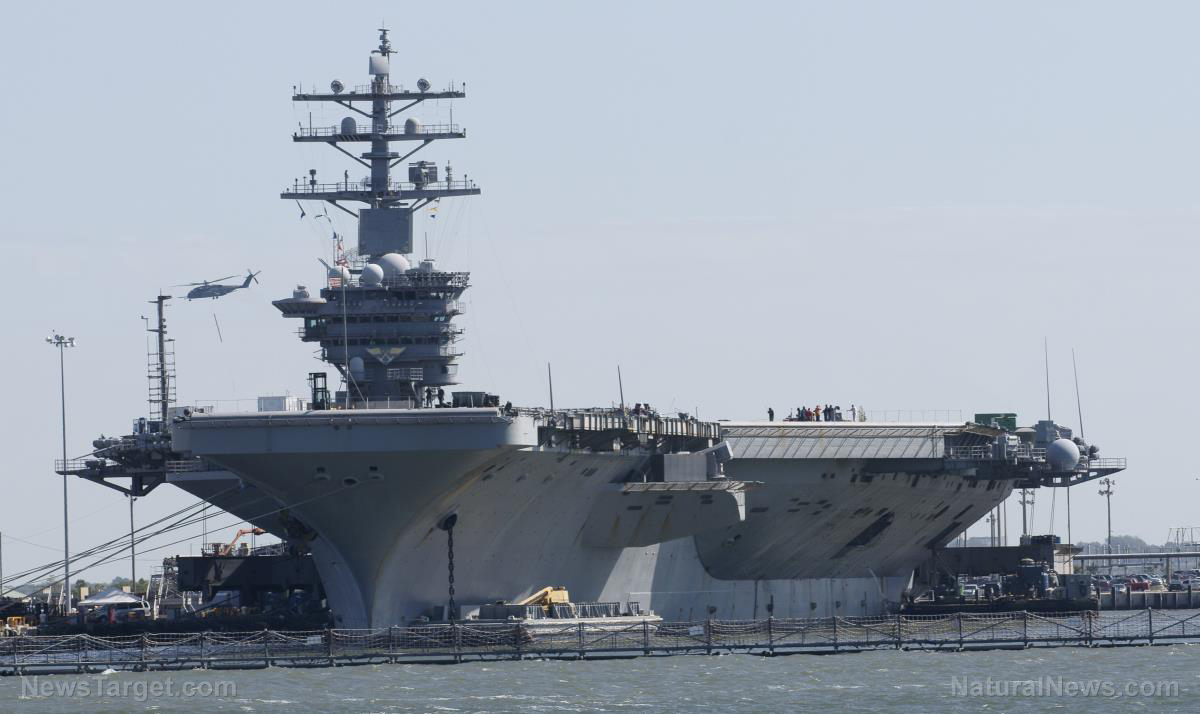- A $60 million F/A-18 Super Hornet fighter jet from the USS Harry S. Truman sank in the Red Sea, possibly after the carrier evaded Houthi missile or drone attacks.
- The Pentagon claims it was a routine accident, but reports suggest evasive maneuvering against Houthi fire caused the loss.
- This marks the second Super Hornet lost by the Truman strike group in months, raising concerns about U.S. military strain in the region.
- The Houthis continue attacking Red Sea vessels, linking their assaults to U.S. support for Israel’s actions in Gaza.
- Critics argue the White House’s refusal to pressure Israel to halt the war is escalating tensions and risking broader conflict.
In another dangerous escalation fueled by the U.S.’s unwavering backing of Israel’s brutal war in Gaza, a $60 million F/A-18 Super Hornet fighter jet rolled off the deck of the USS Harry S. Truman and sank into the Red Sea this week, and some reports indicate it happened after the aircraft carrier took sudden evasive action to avoid incoming Houthi missile or drone fire. The Iran-backed Yemeni rebel group has repeatedly targeted U.S. warships in protest of Israel’s U.S.-backed assault on Gaza, which has killed over 35,000 Palestinians, most of them civilians.
The Pentagon downplayed the incident, claiming the jet was lost during routine towing operations, but initial reports suggest the Truman’s aggressive maneuvering, triggered by Houthi attacks, caused the accident as it tried to evade Houthi fire.
A costly mishap, or a warning sign?
This marks the second F/A-18 lost by the Truman strike group in recent months. In December, another Super Hornet was accidentally shot down by a U.S. cruiser during the chaotic Red Sea operations. While no serious injuries were reported this time, the incident underscores the growing risks of the U.S.’s actions in the Middle East.
The lost jet, valued at $60 million, now sits at the bottom of the Red Sea, yet Navy officials insist the strike group remains «fully mission capable.» Critics argue these high-stakes mishaps reveal a desperate military stretched thin by an undeclared war. Even more alarming? The Truman has been under near-constant threat since deploying to the region, including a February collision with a merchant ship.
Houthis vow retaliation as U.S. doubles down on failed strategy
The Houthis have made their motives clear: their attacks on commercial and military vessels in the Red Sea—including over a dozen drones intercepted by US and British forces last weekend—are direct responses to Israel’s slaughter in Gaza.
Despite this, the White House continues to escalate tensions, forming a 10-nation naval task force and launching airstrikes inside Yemen. Each strike invites more retaliation, yet the administration refuses to address the root cause: Israel’s mass bombing campaign, funded and armed by Washington.
An avoidable crisis
The U.S.’s blind support for Israel has trapped us in an unwinnable quagmire. Rather than pressuring Netanyahu to halt the bombardment of Gaza—which could de-escalate tensions with the Houthis, Hezbollah, and Iran—Washington keeps pouring fuel on the fire. The USS Truman’s latest mishap is a symptom of reckless policy: a military stretched too thin, forced into high-risk maneuvers while political leaders ignore the consequences.
With Houthi leaders warning of wider conflict and U.S. Navy crews operating under constant threat, this won’t be the last multi-million-dollar disaster. If Trump refuses to change course, the next lost jet could come with lost lives—and the blame will land squarely on a White House that chose wartime posturing over diplomacy. The solution is obvious but politically inconvenient: stop enabling genocide, or watch the chaos spread.
The loss of a $60 million fighter jet is a staggering financial blow, but the real cost is strategic. The U.S. military is being drawn deeper into a conflict with no endgame, one sparked by its own reckless foreign policy. If Washington continues to prioritize Israel’s war over regional stability, the Red Sea—and perhaps the entire Middle East—will become a graveyard for American resources and credibility. The Houthis have drawn their red lines. Will the White House listen, or will it keep sleepwalking into disaster?
Sources for this article include:
